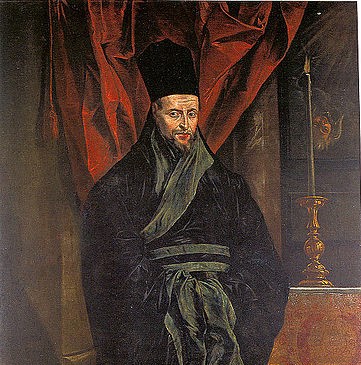Max-Planck-Institut für Rechtsgeschichte und Rechtstheorie
Elisa Frei - The vocation to the overseas missions of the Society of Jesus in the early modern period
by
→
Europe/Berlin
G503 and Online (MPILHLT)
G503 and Online
MPILHLT
Hansaallee 41
60323 Frankfurt am Main
Description

Since it was founded in 1540, the Society of Jesus has been famous among Catholic religious orders for its devotion to education and apostolic ministries—that is, its overseas missions. During the early modern period and until very recent times (20th century), thousands of Jesuits across Europe paused their work in churches and classrooms and drafted individual petitions directly to the superior general of the Society of Jesus. In Rome, the general received these requests for missionary appointments overseas, which are known today as litterae Indipetae because their authors were Indias petentes, that is asking for the East and West Indies. This presentation offers a general introduction to litterae indipetae of the early modern period, especially (but not only) focusing on the petitions written from the Italian peninsula and aimed at the Chinese and Japanese destinations. It concentrates on the qualitative and quantitative relevance of litterae indipetae, an extraordinary collection of ego-documents whose uniqueness is even more accentuated in the case of “unknown” and “unimportant” Jesuits—which are the majority among petitioners for the Indies.
Elisa Frei is an Assistant Professor at the faculty of Catholic Theology of Goethe University Frankfurt. She also works as a project assistant for the Digital Indipetae Database, hosted by the Institute for Advanced Jesuit Studies at Boston College, and is a research associate at the University of York. She has written extensively on Litterae Indipetae and the Jesuit missions in the early modern period. Her monograph Early Modern Litterae Indipetae for the East Indies was published by Brill in 2023.
Organised by
Benedetta Albani
Rômulo da Silva Ehalt
For information
